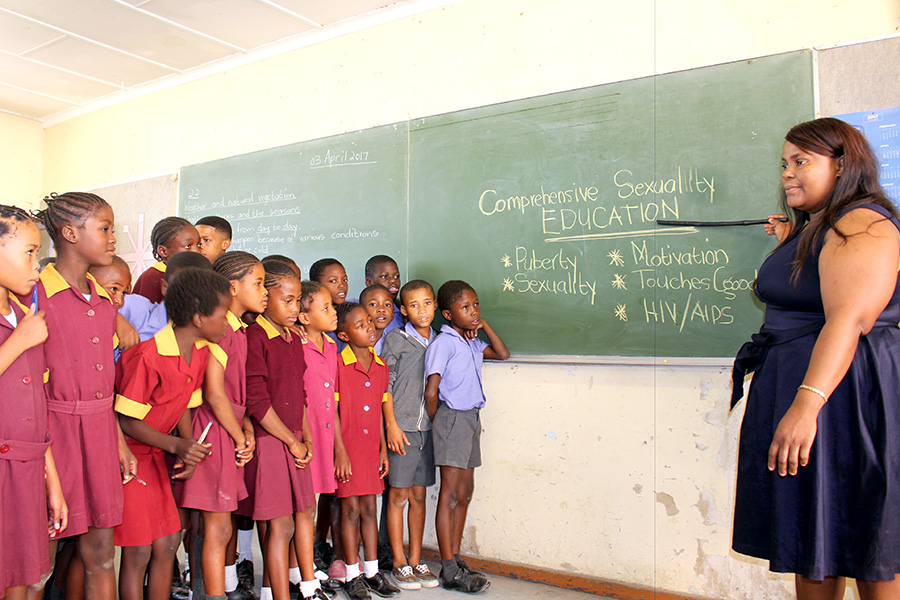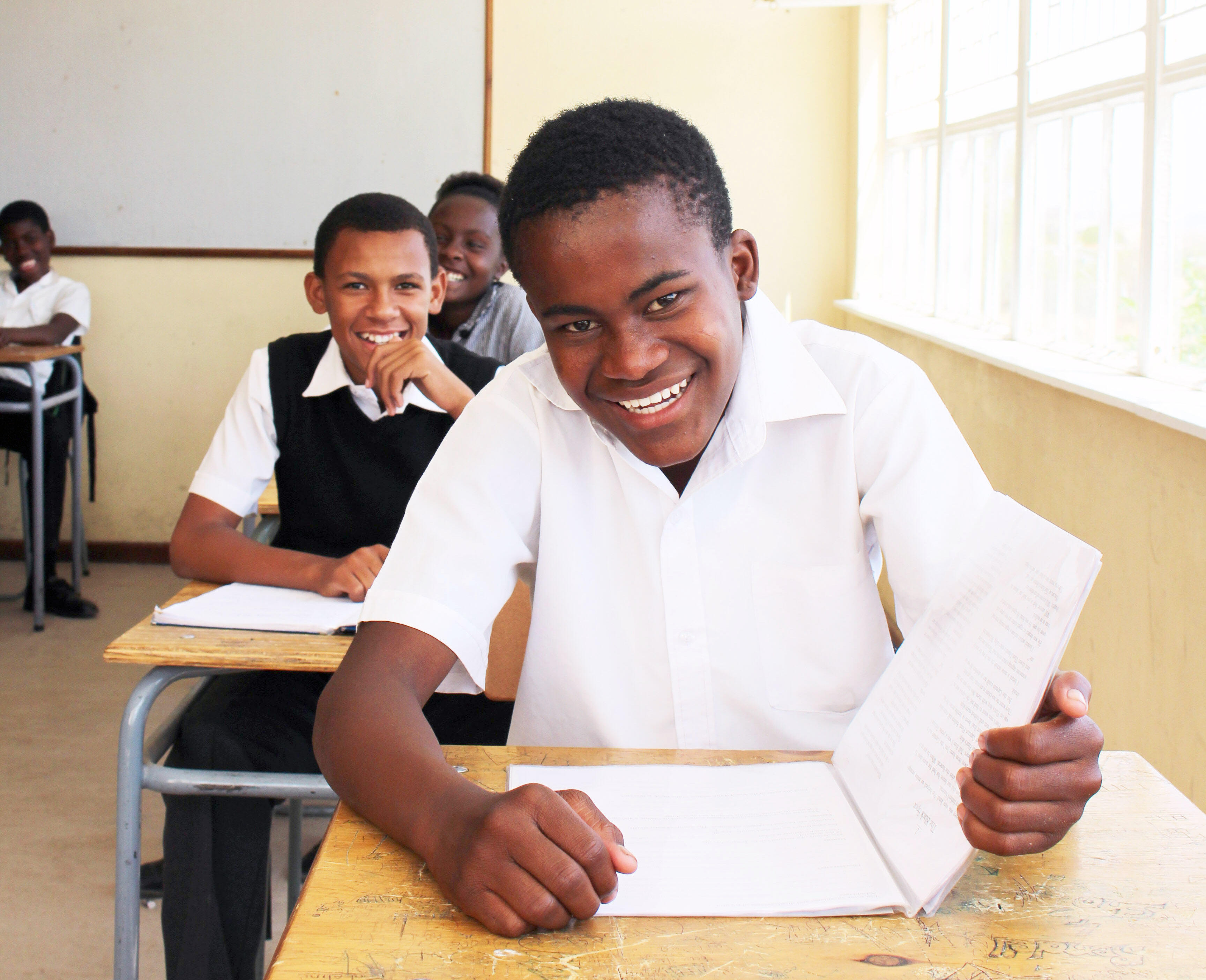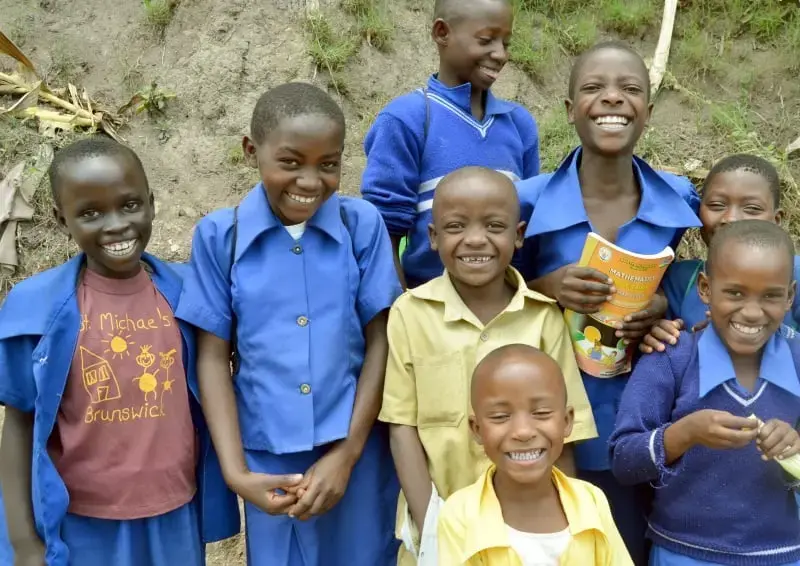Just as schools are foundational to preparing young people academically, they are also a crucial source in ensuring a student’s health and well-being.
UNFPA is supporting governments in scaling up comprehensive sexuality education (CSE) in- and out-of-schools across East and Southern Africa in response to young people’s vulnerability to coercion, unintended pregnancy, HIV and other sexually transmitted infections.
CSE enables young people to protect their health and well-being, including delaying the age of sexual debut, reducing the frequency of sex and number of sexual partners and increasing use of contraception, especially condoms. Taught over several years, CSE providing age-appropriate information consistent with the evolving capacities of young people.
Equipping teachers to deliver sexuality education in the classroom
Adequately trained and supported teachers are critical for quality CSE to be delivered, yet research has pointed to a crucial lack of supervision and support for teachers across East and Southern Africa.
To address this gap, UNFPA, in partnership with UNESCO, supported ministries of education across the region to developed teacher training programmes and resources for pre- and in-service teachers to aid the delivery of sexuality education in the classroom. Since 2014, more than 44,800 teachers have been trained.
Gaoseb Joors, a Life Skills teacher who received training from the programme works in the community of Katutura, an informal settlement in Namibia’s capital city, Windhoek where poverty, unintended pregnancy and HIV is a common reality for his students.
“As adults, we always assume that our problems are bigger than those of children. Only until we have sat down with them and talked, we come to learn the magnitude of their problems,” said Gaoseb.
Gaoseb said although sexuality education might be awkward, it is very important as it prepares young people to make healthy choices.
“Learners are exposed to sex even at the tender age of nine either through rape or play. There is also exposure through media, through television and through their peers.”
“If I can make a difference in one child’s life, it will make me very happy,” said Gaoseb, adding: “Thanks to the training, I now have the resources I need to succeed”.

Tsuses Constancia, who also received comprehensive sexuality education training, shared Gaoseb’s sentiments.
“My work as a teacher is to help learners develop self-confidence and successfully deal with significant life challenges, such as peer pressure, bullying and discrimination.”
Growing acceptance to comprehensive sexuality education
The recent decline in HIV of more than 25 per cent in high burden African countries has been attributed to young people adopting protective behaviours as well as investments in programmes for young people.
This crucial role for comprehensive sexuality education has been recognized by numerous international and regional agreements, including the East and Southern Africa Commitment, endorsed by 21 ministers of health and education to deliver CSE and sexual and reproductive health (SRH) services for young people.
Through UNFPA’s Safeguard Young People Programme, more than 7 million young people have been exposed to sexual and reproductive health information and education in and out of school since 2014.




